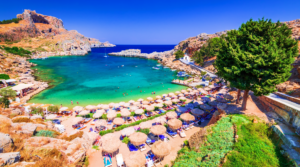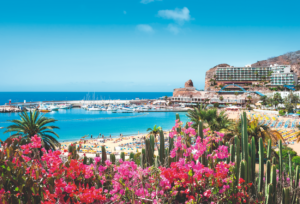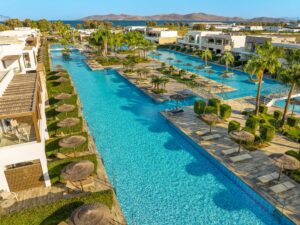Crete is the largest of the Greek Islands, but despite its undeniable beauty, it is often overlooked in terms of historical significance compared with the mainland. While Greece is often noted as the birthplace of civilisation in Europe, many Minoan experts believe Cretan ruins and artefacts tell a different story. For visitors who book Malia holidays to this unique land, the evidence is everywhere you look.
An introduction to Crete: Heraklion, a capital of kings
Those wishing to tour the ancient sites of Crete would do well to start at Heraklion. The capital is the fifth largest city in Greece and boasts a superb collection of artefacts in the Archaeological Museum, as well as celebrating modern culture with its summer arts festival. But it’s the Minoan civilisation that lies beneath nearly every settlement on Crete, where even predominantly Roman cities like Gortyn originated as far back as the 16th century BC.
Dig deep at the Minoan Palace of Knossos
Situated just outside Heraklion, the Palace of Knossos is often associated with the famous Greek myth of the Minotaur imprisoned in the labyrinth, but it’s also the most significant Minoan site on the island. Though abandoned in 1375 BC, its remarkably well-preserved complex of grand chambers and domestic residences still tell us stories from several thousands of years ago.
Count your coins in Phaestos, an ancient mint
In the south of Crete, Phaestos is another ancient settlement, much-lauded for its dramatic position high above the Messara plain. Aside from its aesthetic appeal, Phaestos was an important political centre that produced its own coinage. Even relaxing Malia holiday on the east coast can take a historical turn, where the remains of a Minoan palace still draw the cultural crowd to this popular sun-bather’s paradise.s
An illustrious past: Crete or Atlantis?
Beyond the Minoan legacy, every corner of this island makes reference to an illustrious past and the many influences which have touched it; from the Roman theatre at Lissos to the Venetian fort at Rethymno. It’s an island truly brimming with relics and recent historians have also speculated as to whether Crete was actually the site of the lost city of Atlantis.
Add to these legends some jaw-dropping beach and mountain scenery, tempting local foods and the fact that you’re never far from a perfect sandy shore, it’s certainly time for Crete to emerge from the shadow of its neighbours.
You may also like
Heraklionmalia holidaysMinoan Palace





